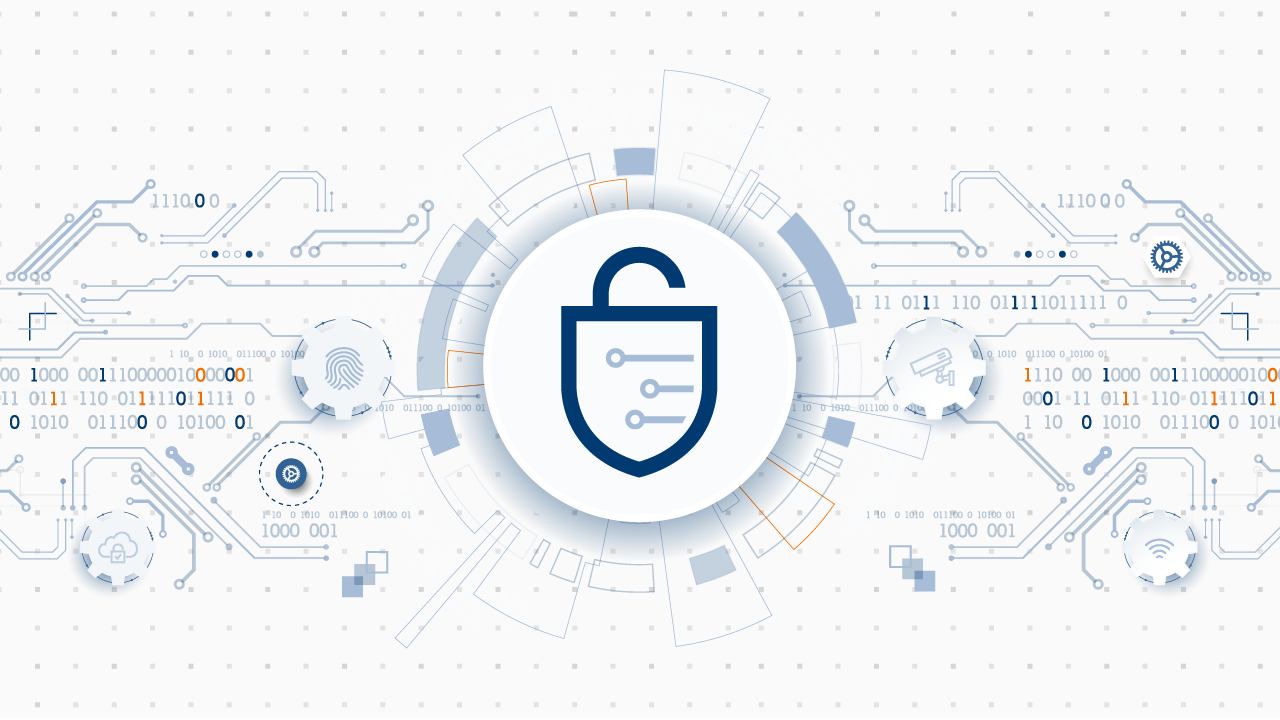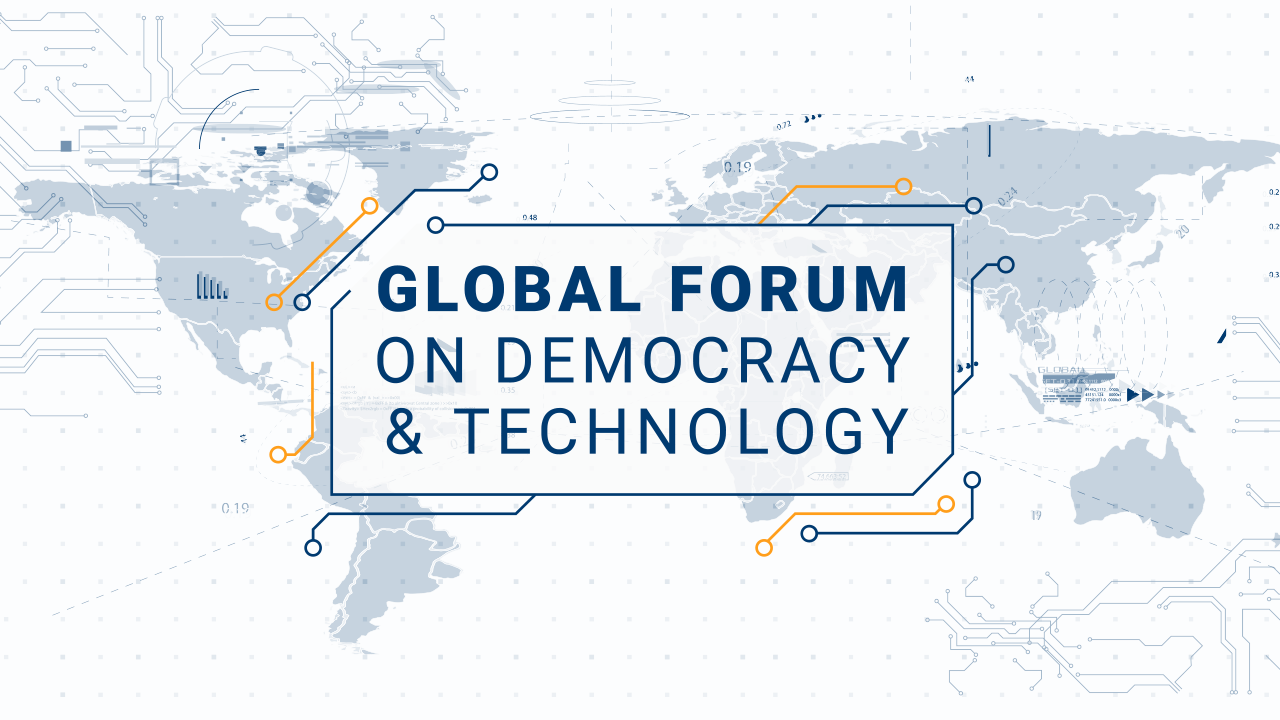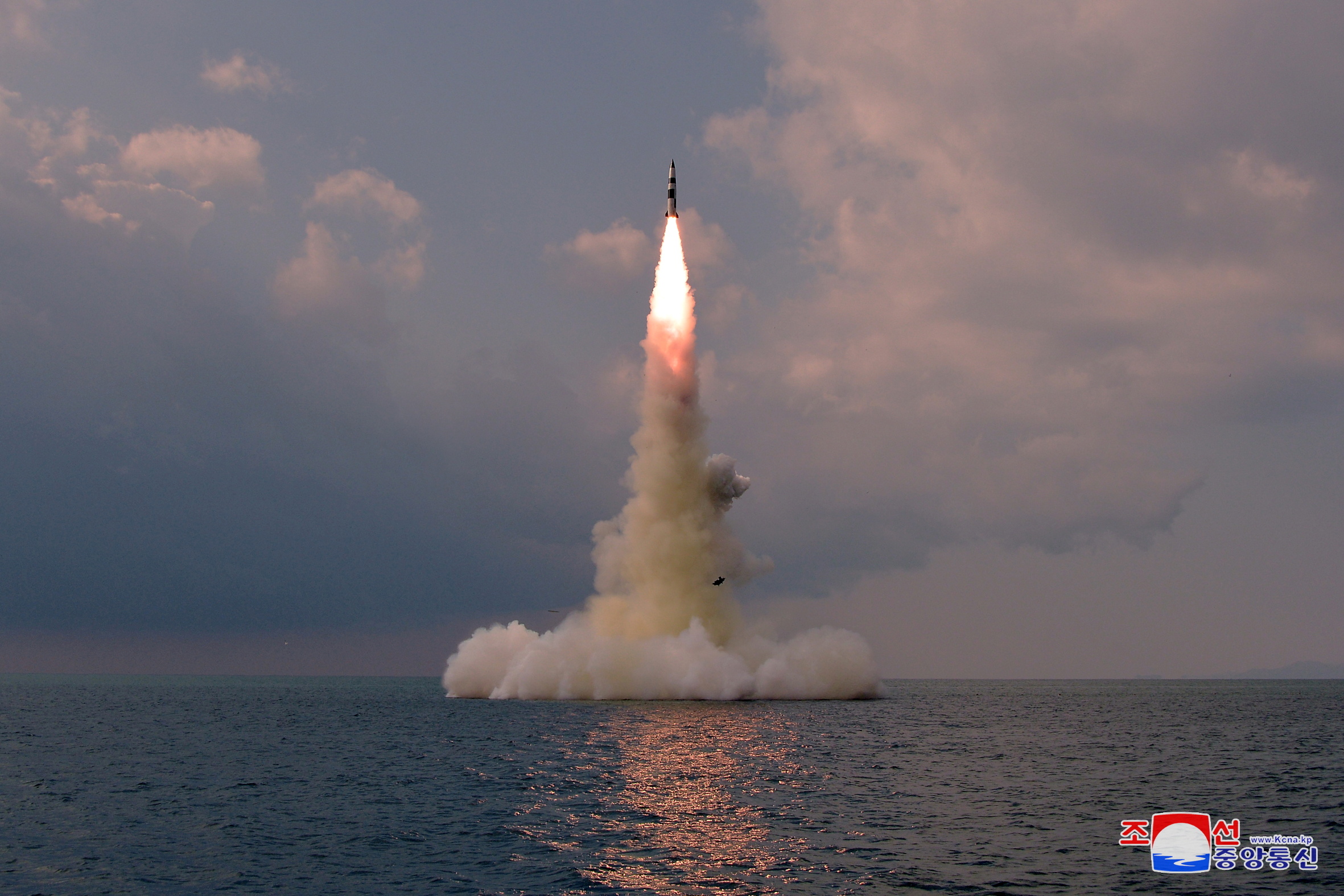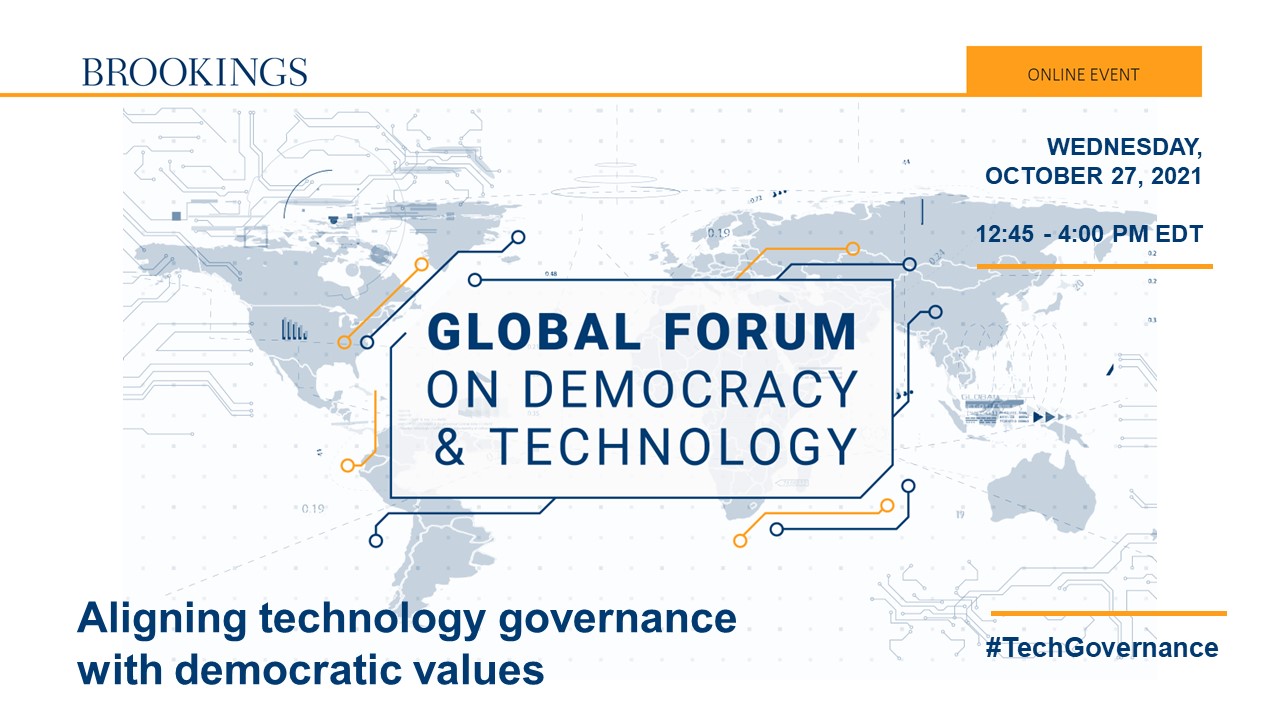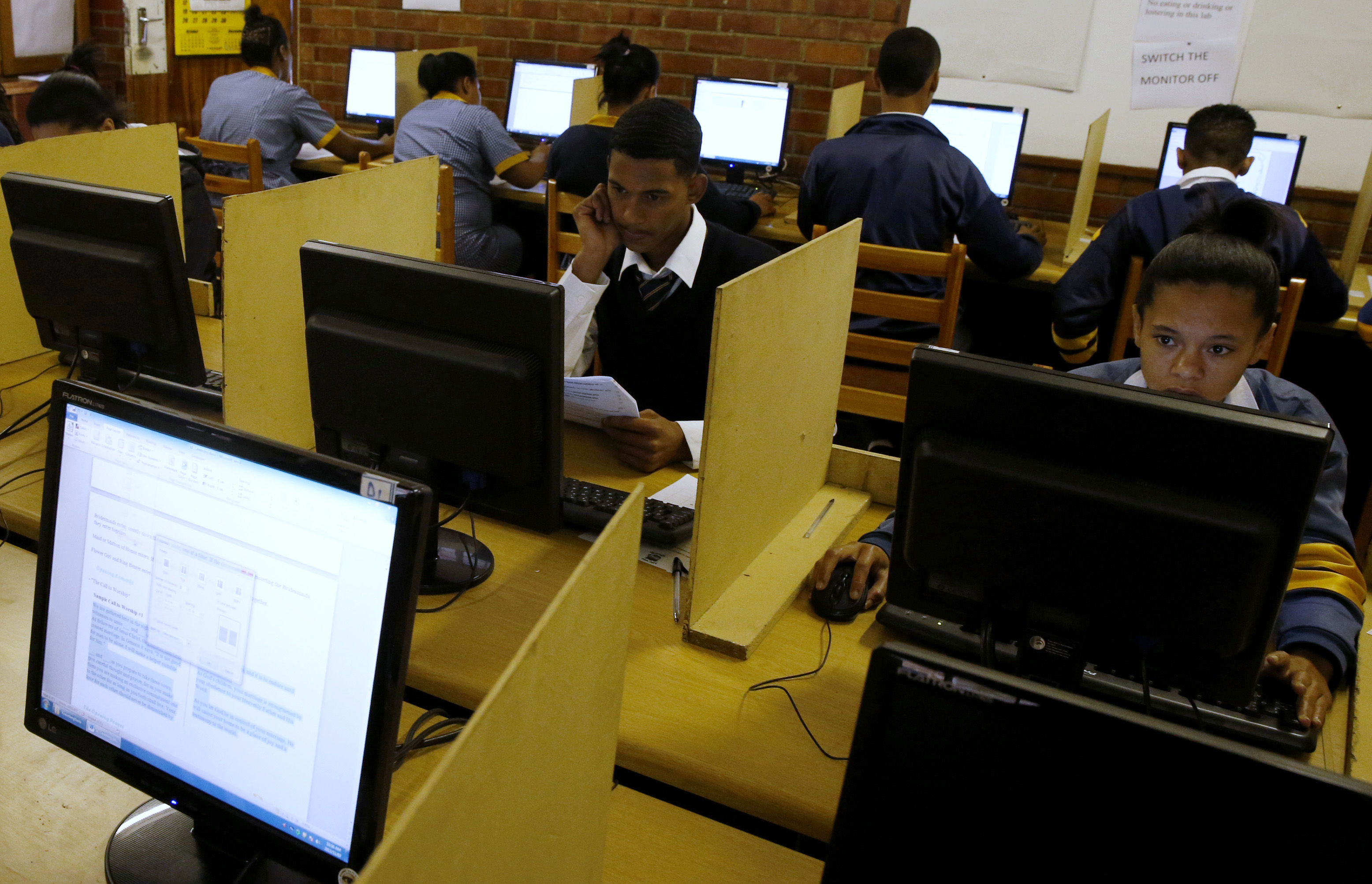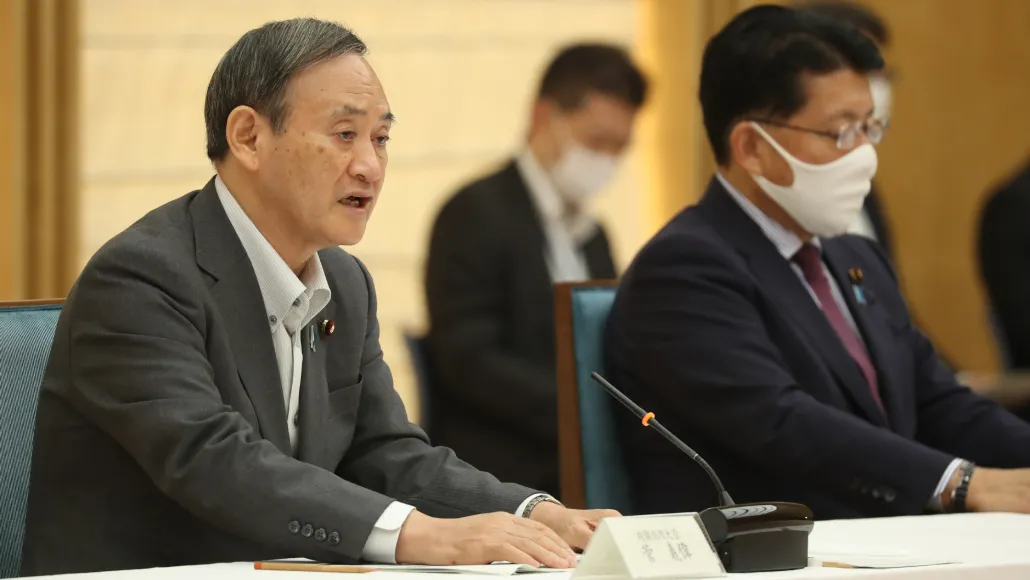Global Forum on Democracy & Technology
Technology policy has become a defining issue of global politics. Digital platforms and infrastructures have fostered greater connection and community around the world, but they have also empowered malicious actors and regimes. Likewise, artificial intelligence and other advanced technologies have given rise to new breakthroughs in science and medicine, as well as new forms of surveillance and repression. The new technologies promise greater economic prosperity, but they can also worsen economic disparities that can undermine democratic governance. A central challenge democratic societies face is how to govern advanced technologies in a way that reinforces liberal norms and values while outcompeting authoritarian models.
The Brookings Global Forum on Democracy and Technology aims to meet that challenge. Drawing on scholars from across the Institution, the Global Forum’s research and convenings seek to develop shared practices and applications for technology that can strengthen democratic societies around the world.
Featured Event
Global China: US-China relations through the lens of technology competition
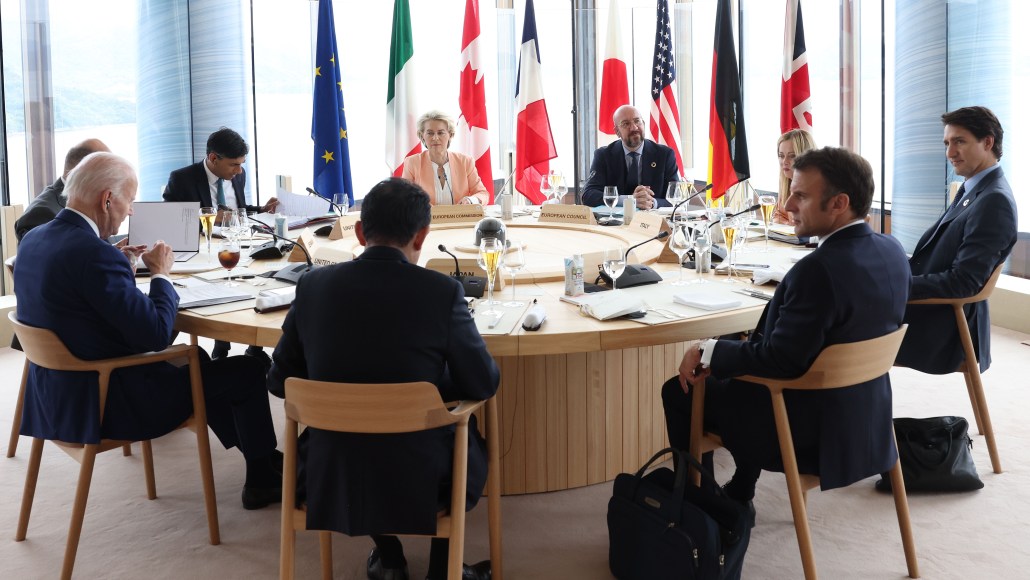
Featured Event
The geopolitics of generative AI
On July 19, the Foreign Policy program and Artificial Intelligence & Emerging Technology Initiative at Brookings will host a virtual discussion on the geopolitics of generative AI and how governments around the world are approaching the novel challenges posed by the AI revolution.
Research Areas
Governance
The global spread of digital platforms and advanced technologies like AI has raised pressing governance questions. What can democratic societies do to ensure the responsible development and deployment of trustworthy AI? And what kind of coalitions and institutions will be required for democratic models of technology governance to take root globally?
Inequality
As they transform business and work, digital technologies have highlighted, and can deepen, economic and social fault lines across advanced and developing economies. How can the policy agendas in democratic societies harness technology to promote inclusive economic growth? In what ways can democracies use technological changes to build inclusive prosperity and bolster regional efforts to compete in global markets? And what can democracies do to facilitate the development of digital infrastructures that are developed by democratic countries and governed in line with liberal values?
Security
Next generation technologies are increasingly available almost as quickly as they are developed. How can these advanced technologies be deployed responsibly by democratic states? How will rogue regimes and non-state actors look to exploit them and how can democratic governments cooperate in countering their malicious use? How can democratic societies navigate threats from authoritarian adversaries in the information domain and build resilience to cyber threats?
Events

